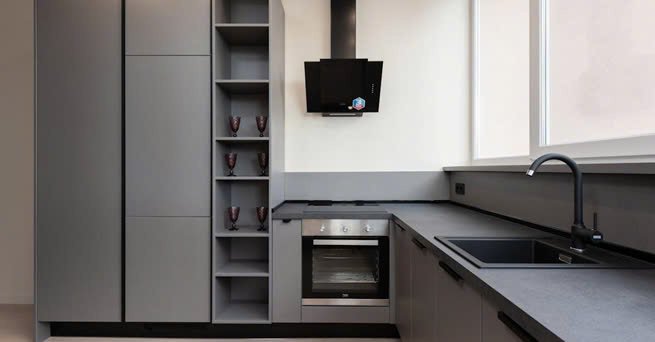Effective Teamwork with Siding Contractors in Boston: Essential Advice for Homeowners
Discover essential advice for homeowners on fostering effective teamwork with siding contractors in Boston, ensuring a smooth, successful home improvement project.
Renovating your home’s siding is a significant investment, and if you’re planning a siding project in Boston, working closely with your siding contractors is crucial to ensuring a smooth process and successful outcome. Whether you’re upgrading for better insulation, improved curb appeal, or addressing weather-related wear, clear communication with your siding contractor is key. Establishing a shared understanding of your needs and expectations lays the foundation for a job well done.
In this guide, we’ll explore essential tips for homeowners looking to work effectively with siding contractors in Boston, helping you prepare for your project and make informed decisions every step of the way.
1. Understand Your Siding Requirements
Before reaching out to potential contractors, it’s important to first have a solid understanding of your own siding needs. This preliminary research will not only help you communicate effectively with contractors but also ensure that you’re making choices that align with your home’s specific requirements. Consider the following:
A. Visual Features
The aesthetics of your home’s exterior are often the first consideration for homeowners when choosing siding. Think about the overall look you want to achieve. Do you prefer the classic charm of wood siding, the durability and low maintenance of vinyl siding, or perhaps the long-lasting, weather-resistant qualities of fiber cement? Each material comes with its own unique look and benefits. In Boston, where historical architecture is prominent, some homeowners may need to adhere to certain visual guidelines, especially in older or historical neighborhoods.
Consider also the color of the siding. Do you want to maintain the original color, or are you looking to refresh your home’s exterior with a modern palette? Having a clear idea of the style and color you desire will help you narrow down your options when discussing materials with your contractor.
B. Functional Needs
Boston’s weather can be unpredictable, with harsh winters and humid summers, making it essential to choose siding that offers protection against the elements. Different siding materials provide varying levels of insulation, moisture resistance, and durability. For instance, fiber cement siding is known for its resistance to extreme temperatures, making it a popular choice in regions with diverse weather patterns like Boston.
Consider your home’s specific needs. Do you require added insulation to improve energy efficiency? Is moisture resistance a top priority due to heavy rains or coastal proximity? By understanding these functional requirements, you’ll be better equipped to select the right siding for your home.
C. Budget Considerations
Setting a realistic budget is a critical step before contacting siding contractors. Keep in mind that your budget will need to cover both labor and materials. Prices can vary significantly depending on the siding material you choose and the complexity of the installation process. For example, vinyl siding may be more affordable than wood or fiber cement, but each material comes with its own advantages and lifespan.
Be sure to leave some flexibility in your budget for unexpected costs, such as repairs to your home’s structure that may be necessary once the old siding is removed. Discussing your budget with contractors upfront allows them to tailor their suggestions and quotes to your financial limitations.
2. Essential Information to Share with Your Contractor
Once you have a clear idea of your siding needs, it’s important to share relevant information about your home and project expectations with your contractor. Providing thorough details from the outset will help ensure that contractors can give you accurate estimates and realistic timelines.
A. House Features
Inform the contractor about the age and condition of your home, as these factors can impact the installation process. Older homes, particularly those in Boston’s historic districts, may require special consideration, such as structural inspections or compliance with historical preservation guidelines.
Additionally, if your home has undergone any prior siding repairs or replacements, it’s important to mention this to your contractor. They’ll need to know whether they’re working with original materials or if there are any underlying issues that could affect the new installation.
B. Current Problems with Existing Siding
If your current siding is showing signs of damage, such as rot, gaps, mold, or warping, be sure to communicate these issues to the contractor. Identifying existing problems early on will allow the contractor to assess whether repairs are needed before installing new siding. In some cases, the underlying structure of your home may need to be repaired to ensure the longevity of the new siding.
C. Project Timeline
Timeframes are another important detail to share. If you have a specific deadline in mind, such as completing the project before winter or a special event, make sure to communicate this upfront. A clear timeline allows the contractor to plan accordingly and ensure the work is completed on schedule. Keep in mind that unexpected delays can occur, particularly due to weather, so it’s wise to discuss a realistic schedule that accounts for potential setbacks.
3. Key Questions to Ask Siding Contractors
Before hiring a siding contractor, asking the right questions will help you assess their experience, expertise, and suitability for your project. Here are some crucial questions to keep in mind:
A. What is Your Experience with the Specific Siding Material?
Not all siding contractors have experience with every type of material. If you have a particular material in mind, such as fiber cement or vinyl, be sure to ask the contractor about their experience with it. This will give you a sense of their familiarity with the installation process and whether they’re equipped to handle your project.
B. Can You Provide References or Examples of Completed Work?
Requesting references from previous clients or examples of completed projects can give you a better idea of the contractor’s workmanship and reliability. Reviewing photos of their previous jobs can also help you gauge whether their style aligns with your vision. Be sure to check online reviews as well for additional insights into customer satisfaction.
C. What Warranties Do You Offer on Labor and Materials?
Warranties are important for ensuring long-term satisfaction with your siding project. Ask the contractor what kind of warranties they offer on both labor and materials. This will give you peace of mind knowing that any issues that arise after installation will be covered. Additionally, inquire about any ongoing maintenance requirements for the siding material you choose.
4. Finalizing the Agreement
Once you’ve chosen a contractor and discussed your project in detail, it’s time to finalize the agreement. Ensure that all aspects of the project are clearly outlined in a written contract. This should include:
Scope of Work: A detailed description of the work to be done, including the materials and installation techniques to be used.
Timeline: Specific start and end dates for the project, allowing you to plan accordingly.
Payment Terms: A breakdown of the payment schedule, including any deposits and milestone payments.
Having everything in writing will help avoid misunderstandings and ensure that both parties are on the same page.
Conclusion
Working effectively with siding contractors in Boston requires clear communication, a solid understanding of your project’s needs, and asking the right questions. By preparing thoroughly, sharing key information with your contractor, and finalizing a detailed agreement, you’ll be well on your way to a successful siding renovation. Whether you’re looking to enhance your home’s curb appeal or improve its weather resistance, teamwork with your siding contractor is the key to turning your vision into reality.






























